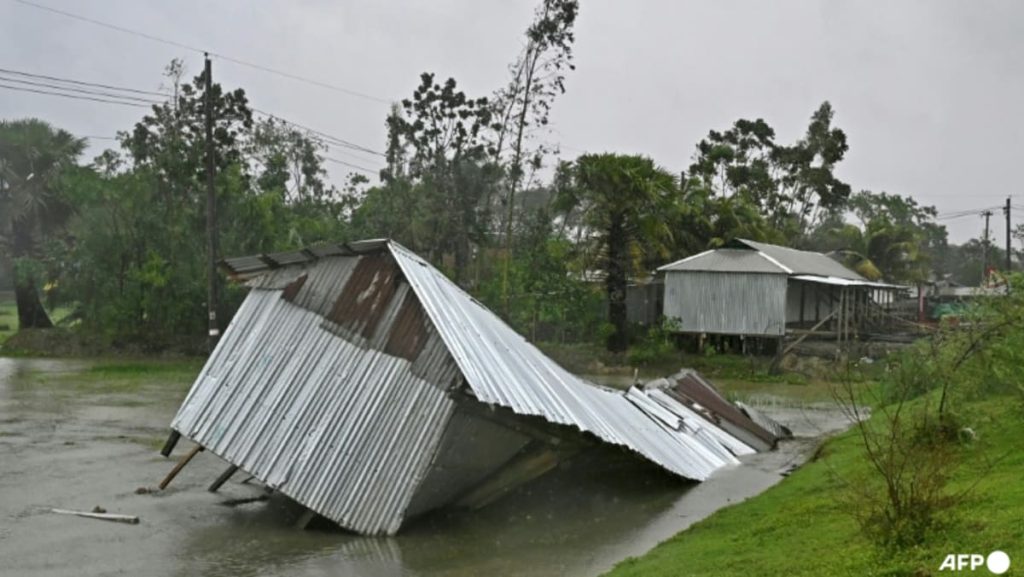The impact of climate change is becoming increasingly evident, as seen in the devastation caused by Cyclone Remal in Bangladesh. The cyclone triggered massive rains, resulting in severe flooding that affected millions of people and destroyed thousands of homes. Storm surges breached embankments, allowing seawater to flood farmland, freshwater fish farms, and drinking water sources. The state minister for disaster estimated that 3.75 million people were affected by the cyclone, highlighting the urgent need for disaster preparedness and mitigation efforts.
Due to the rapid formation and long duration of Cyclone Remal, experts believe that climate change played a significant role in intensifying the storm. Azizur Rahman, an expert on cyclone monitoring, noted that the cyclone formed more quickly than previous cyclones, highlighting the changing dynamics of these natural disasters. While climate change is fueling more intense storms, improved forecasting and evacuation planning have helped reduce the death toll during such events. However, the lack of infrastructure and resources in affected areas continues to pose challenges for recovery efforts.
The devastating impact of Cyclone Remal resulted in numerous deaths and injuries in both Bangladesh and India. People drowned, were crushed by collapsing buildings, or electrocuted by falling power lines. The destruction of electricity infrastructure left millions without power, further complicating relief efforts. The importance of coastal ecosystems, such as the Sundarbans mangrove forest, in protecting coastal communities from the impact of storms was evident in this event. These crucial forests mitigate the violence of storms and provide a vital buffer against extreme weather events.
The threat of climate change to mangrove ecosystems was highlighted by the International Union for Conservation of Nature (IUCN), which warned that half of the world’s mangrove ecosystems are at risk of collapse. Climate change, deforestation, and pollution are contributing to the degradation of these important ecosystems, which play a critical role in protecting coastal areas from storms and sea-level rise. The need for conservation efforts to preserve mangroves and other coastal ecosystems is essential to safeguarding vulnerable communities from the impacts of climate change.
The aftermath of Cyclone Remal serves as a stark reminder of the urgent need to address the root causes of climate change and enhance disaster preparedness in vulnerable regions. While advancements in forecasting and evacuation planning have helped mitigate the impact of storms, the increasing frequency and intensity of extreme weather events underscore the need for proactive measures to build resilience in communities. Sustainable development practices, ecosystem conservation, and climate adaptation strategies are essential in safeguarding vulnerable populations and ecosystems from the impacts of climate change.
In conclusion, the devastating impact of Cyclone Remal in Bangladesh and India underscores the urgent need to address the challenges posed by climate change. The rapid formation and intensification of the cyclone, coupled with the vulnerability of coastal communities, highlight the complex dynamics of climate-related disasters. Enhancing disaster preparedness, investing in sustainable development, and protecting critical ecosystems are essential steps in building resilience to the impacts of climate change. By addressing the root causes of climate change and implementing proactive measures, we can mitigate the risks posed by extreme weather events and protect vulnerable populations from future disasters.















